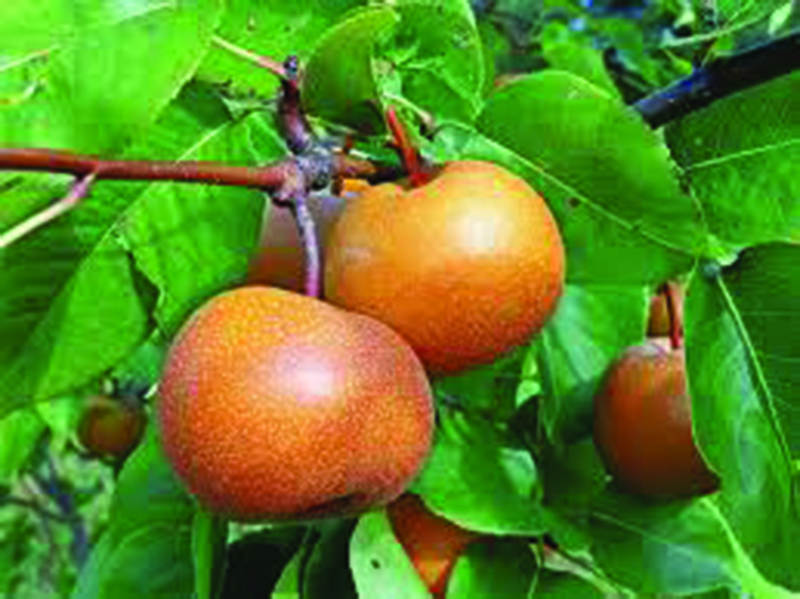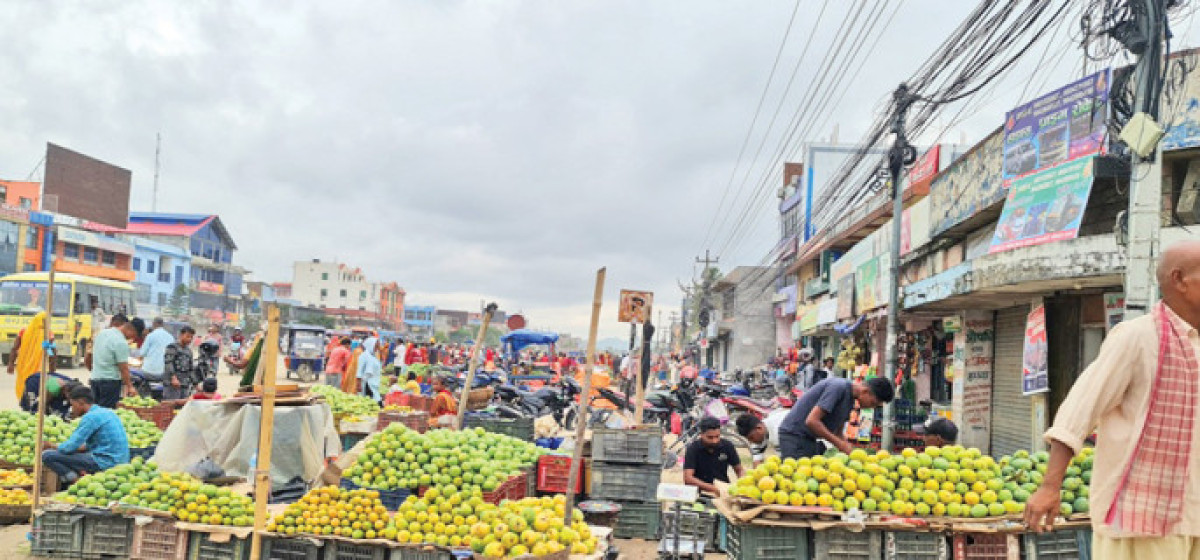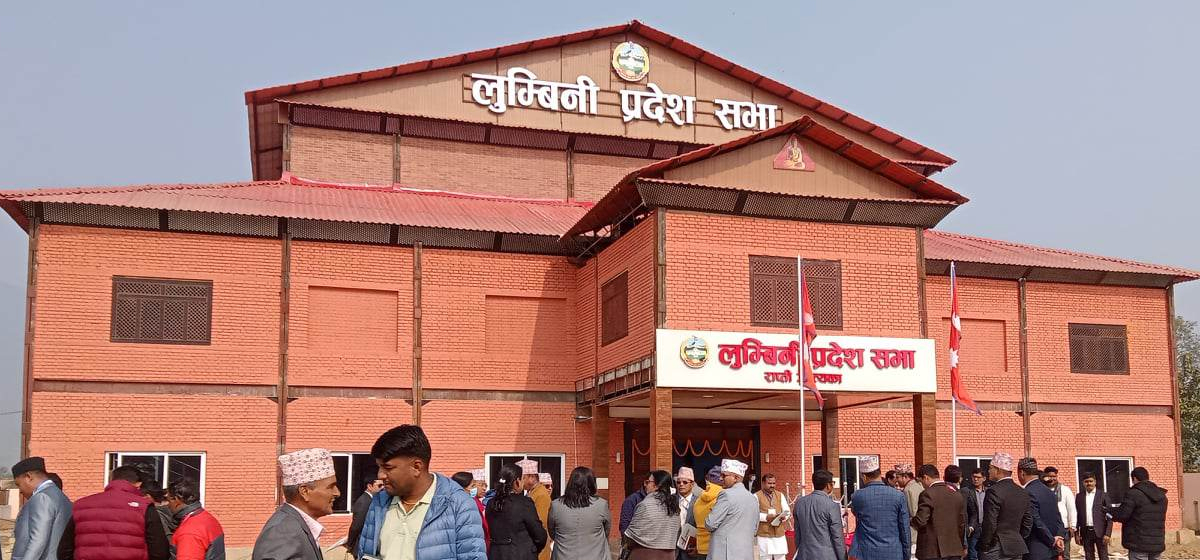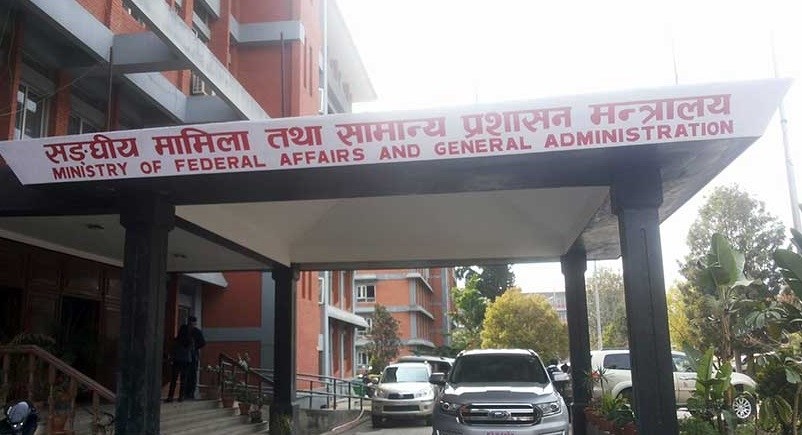
OR

If Nepal is to benefit from World Trade Organization, it must make horticultural products competitive by removing all the constraints
Horticulture is a branch of agriculture concerned with intensively cultured plants directly used by mankind for food, for medicinal purposes and for esthetic gratification. It is unique among plant sciences because it not only involves science and technology, but also incorporates art and principles of design. So it is also called a specialized branch of agriculture. It is distinguished from agriculture by specialization and commercialization and is one of the important sectors in agriculture, contributing more than 25 percent to agricultural Gross Domestic Product (GDP). It plays important role in poverty reduction and food and nutritional security. In Nepal, there is a tremendous scope for commercialization of horticulture in order to enter into the international market. However, there is a fear that recent restructuring of agriculture can hinder or slow down its development.
Need for specialization
One of the fastest growing areas of agriculture, which demands high level of specialization, is Controlled Environment Horticulture (CEH). It is the production of special crops under indoor production systems with the technology to control the environment such as greenhouses, vertical farms/plant factories, tissue culture and post-harvest. The CEH includes commercial growers, production specialists, inventory controller, operations managers, research support specialist, and pest and disease management specialist and nutrition specialist. A wide range of skills are necessary for a person to operate CEH production successfully.
There is a demand for highly educated and skilled employees who have a deep understanding of the latest technologies in controlled environment horticulture. Another important component of horticulture requiring high degree of specialization is post-harvest management, which involves transformation of a product from its state at harvest to its ready-to-consume state. Use of biotechnology to increase production and productivity in horticulture is also equally important. Horticulture as such is a promising and emerging sector for agricultural diversification to enhance profitability through efficient land use, optimum utilization of natural resources and creating employment for rural masses.
For smooth development of horticulture, there is an urgent need to initiate programs for attracting and retaining skilled people. It is because Nepal is already facing a shortage of specialists with the appropriate skills in many emerging areas of horticulture.
Role of specialists
Technology plays a major role in solving many of the horticultural problems. Technologies are generated by the scientists and these technologies are tested by the specialists. They also carry out research in other areas including crop choice and rotation, cultivation and harvesting, soil and water issues, and animal husbandry and nutrition. Horticulture specialists often specialize in a specific area, for example pomology (science of fruit growing), olericulture (science of vegetable growing), floriculture and landscape, post-harvest management and many others. They have to work closely with scientists and farmers to ensure the success in the businesses.
They provide assistance and advice to farmers and entrepreneurs. The typical job duties one might encounter as an horticulture specialist are: 1) counseling and advisory services to farmers on production issues, for example cultivation, fertilization and harvesting; 2) preparing and conducting trainings for farmers and field level technicians; 3) conducting grow-out tests and implementing new technology and practices; 4) analyzing horticultural data and preparing technical reports; 5) liaising with researchers, educators and business managers; 6) maintaining records of services provided and their results; and 7)promoting mutual understanding and cooperation among different stakeholders
Horticulture specialists work in different locations, including laboratories for testing samples, an office for doing paperwork and analyzing data for reporting, and the field for observing and testing technologies.
Wrong decision
The Department of Agriculture, which bears overall responsibility for the growth and development of agricultural sector, has been restructured recently. In this context, six centers have been created dissolving the existing 12 program directorates. The fruit and vegetable development directorates have been renamed as National Fruit Development Center and Center for Potato, Vegetable and Spice Crops Development Center. Their roles and responsibilities are also reduced considering the federal structure. This is alright. But the provision to keep open the chief of the center to any gazette first class officer from any service group or faculty of the agriculture service is not a right decision. This provision will result in the loss of specialization, without which horticulture cannot be developed.
These two centers have to play the roles of specialization in their respective fields. Horticulture being a specialized subject of agriculture requires experts even at the senior level. If officers other than horticulturists are posted to these senior positions, they will be incompetent to take-up the technical responsibilities and perform the tasks effectively. This type of arrangement can become a hurdle in the development of horticulture.
In the changing socio-economic and technological context, there is a need to produce, recruit and develop appropriate human resources in order to deliver effective and efficient services in the horticulture sector. Furthermore, commercialization needs specialization and specialization demands specialists. If a staff member who has been trained on a particular subject matter is transferred to a job with a different set of responsibilities, he/she cannot perform well. The acquired skills will not be fully utilized. In such situation, training does not fully serve the purpose of improving organizational performance as well as professional development.
Subject specific experts in some specific subjects such as biotechnology, climate change, processing and controlled environment of horticulture are in high demands. There is also lack of subject matter specialists (SMS) in spice crops, tea, and coffee sub-sector. But the existing arrangement and structures are not so facilitative in producing and retaining required experts or specialists. This type of leadership arrangement cannot manage the challenges posed in the horticulture sector in terms of technology use for increasing production.
But the development of the horticulture sector is essential to achieve the targets of agricultural growth and export promotion. If Nepal is to benefit from joining global trade bodies such as the World Trade Organization (WTO), there is a need to make the horticultural products competitive in the market by removing the constraints faced by the commercial farmers and other stakeholders.
This requires capacity enhancement of technical experts for human resource development. This is possible only when the professional horticulturists lead these centres. Moreover, sub-groups within the horticulture group would also be required to bolster productivity.
bhairabr@gmail.com
You May Like This

Federalism: learning by doing
Issues have emerged regarding effective implementation of federalism. But there is a long way to go and these issues can... Read More...

Aug 21: 6 things to know by 6 PM
Your daily dose of missed important news of the day. ... Read More...

What Nepal needs is India's friendship and support for growth: Nepal PM Oli
In an exclusive interview to The Hindu, Mr. Oli says the bitterness of past relations have been put behind them,... Read More...


Just In
- Police disclose identity of seven individuals arrested with almost 2 kg gold and more than Rs 10 million in cash
- NIMSDAI Foundation collaborates with local govt for Lobuche Porter’s Accommodation Project
- Home Ministry directs recalling security personnel deployed for personal security against existing laws
- Fake Bhutanese refugee case: SC orders continued pre-trial detention for seven individuals including former DPM Rayamajhi
- ADB Vice-President Yang pays courtesy call on PM Dahal
- PM Dahal, Chairman of CIDCA Zhaohui hold meeting
- MoFAGA transfers 8 under secretaries and 11 section officers (with list)
- PM Dahal arrives in Morang


















Leave A Comment